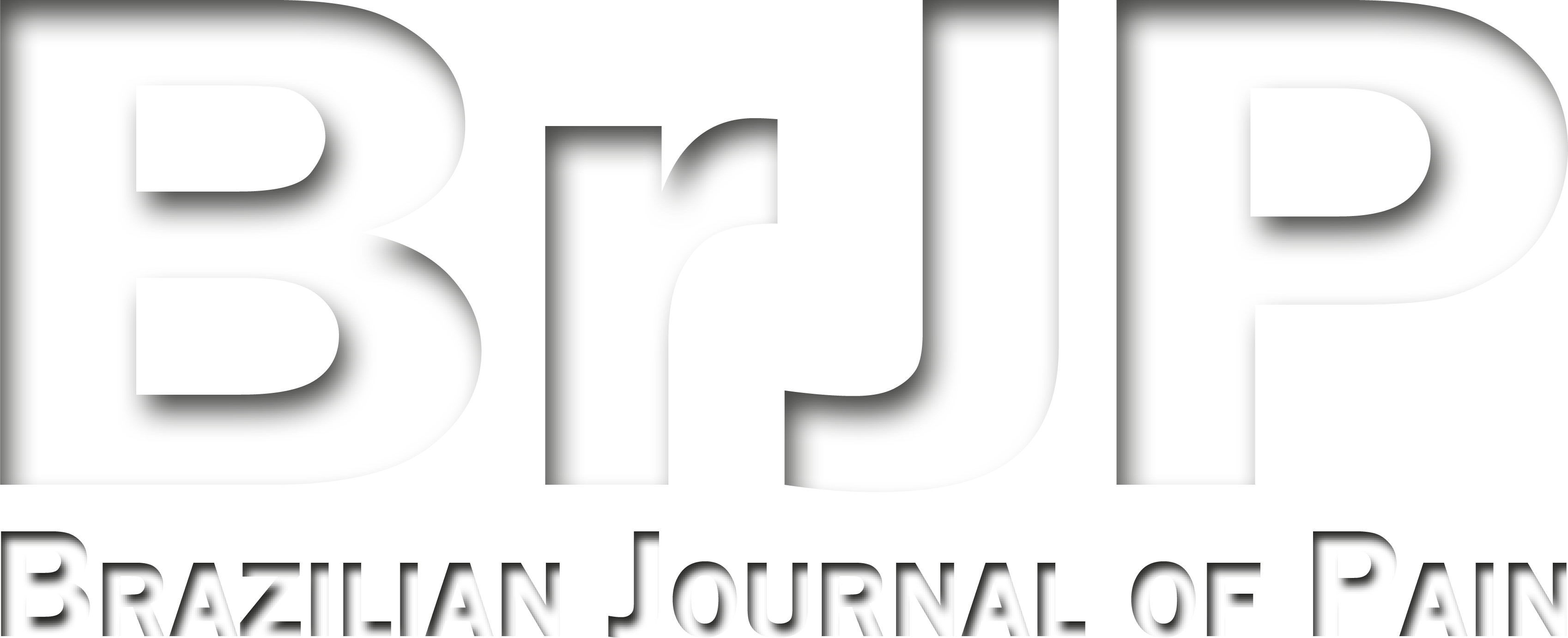Characteristics and perception of social support by patients with fibromyalgia in Facebook
Características e percepção de apoio social por pacientes com fibromialgia no Facebook
Felipe Azevedo Moretti; Sandra Santos Silva; Claudia Galindo Novoa
Abstract
Keywords
Resumo
Palavras-chave
Referências
Murray E, Burns J, See TS, Lai R, Nazareth I. Interactive Health Communication Applications for people with chronic disease. Cochrane Database Syst Rev. 2004;18(4):CD004274.
Andrade GR, Vaitsman J. Apoio social e redes: conectando solidariedade e saúde. Ciênc Saúde Coletiva. 2002;7(4):925-34.
Luciano JV, Sabes-Figuera R, Cardeñosa E, T Peñarrubia-María M, Fernández-Vergel R, García-Campayo J. Cost-utility of a psychoeducational intervention in fibromyalgia patients compared with usual care: an economic evaluation alongside a 12-month randomized controlled trial. Clin J Pain. 2013;29(8):702-11.
Goossens ME, Rutten-van Mölken MP, Leidl RM, Bos SG, Vlaeyen JW, Teeken-Gruben NJ. Cognitive-educational treatment of fibromyalgia: a randomized clinical trial. II. Economic evaluation. J Rheumatol. 1996;23(7):1246-54.
Camerini L, Camerini AL, Schultz PJ. Do participation and personalization matter? A model-driven evaluation of an internet-based patient education intervention for fibromyalgia patients. Patient Educ Couns. 2013;92(2):229-34.
van Uden-Kraan CF, Drossaert CH, Taal E, Seydel ER. Patient-initiated online support groups: motives for initiation, extent of success and success factors. J Telemed Telecare. 2010;16(1):30-4.
Johnsen JA, Rosenvinge JH, Gammon D. Online group interaction and mental health: Ananalysis of three online discussion forums. Scand J Psychol. 2002;43(5):445-9.
van Uden-Kraan CF, Drossaert CH, Taal E, Lebrun CE, Drossaers-Bakker KW, Smit WM. Coping with somatic illnesses in online support groups: do the feared disadvantages actually occur?. Comput Human Behav. 2008;24(2):309-24.
Frost JH, Massagli MP. Social uses of personal health information within patients like me: an online patient community: what can happen when patients have access to one another's data. J Med Internet Res. 2008;10(3).
Amaral A, Natal G, Viana L. Netnografia como aporte metodológico da pesquisa em comunicação digital. Cad Esc Comunic. 2008;6(1):34-40.
Jacopetti A. Práticas sociais e de comunicação de pacientes renais no Facebook da Fundação Pró-Rim. Rev Estud Comun. 2011;12(27):81-9.
Lorig KR, Mazonson PD, Holman HR. Evidence suggesting that health education for self-management in patients with chronic arthritis has sustained health benefits while reducing health care costs. Arthritis Rheum. 1993;36(4):439-46.
Lorig KR, Ritter PL, Laurent DD, Plant K. The internet-based arthritis self-management program: a one-year randomized trial for patients with arthritis or fibromyalgia. Arthritis Rheum. 2008;59(7):1009-17.
Moretti FA, Zucchi P. Characterization of support groups and patient associations for individuals with rheumatologic disease in Brazil. Rev Bras Reumatol. 2010;50(5):516-28.
Berber JS, Kupek E, Berber SC. Prevalência de depressão e sua relação com a qualidade de vida em pacientes com síndrome da fibromialgia. Rev Bras Reumatol. 2005;45(2):47-54.
Carvalheiro JR, Hélder P, Ricardo M. Público, Privado e representação online: o caso do Facebook. Comunicação Digital - 10 anos de Investigação. 2013.
Kaufman D. A força dos "laços fracos" de Mark Granovetter no ambiente do ciberespaço. Galaxia. 2012;23:207-18.
Bauman Z. Amor líquido: sobre a fragilidade dos laços humanos. 2004.
Chor D, Griep RH, Lopes CS, Faerstein E. Social network and social support measures from the Pró-Saúde study: pre-tests and pilot study. Cad Saude Publica. 2001;17(4):887-96.
Submetido em:
03/10/2017
Aceito em:
04/01/2018


